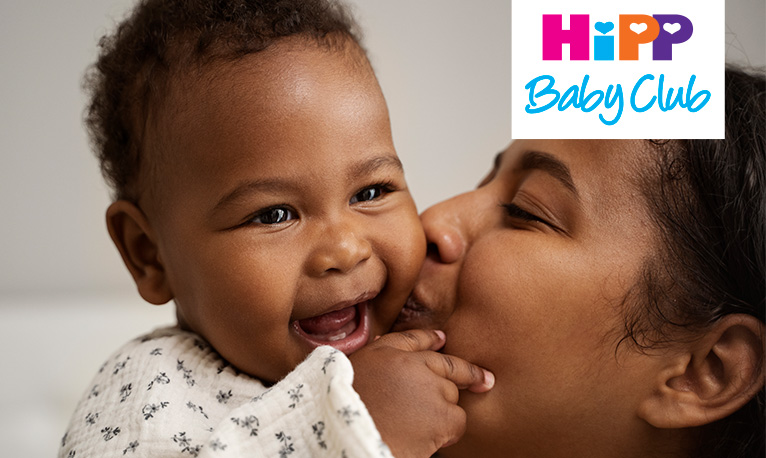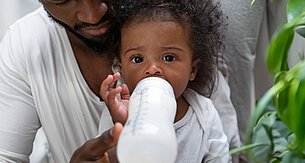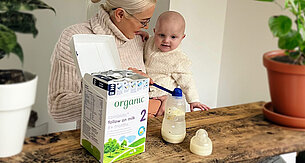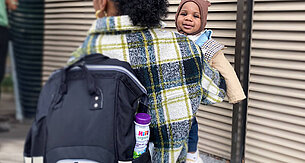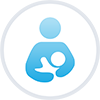What is reflux in babies?
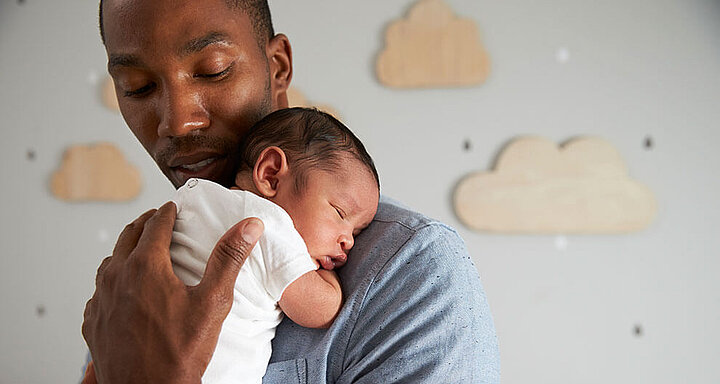
Many babies bring up milk during or shortly after feeding: this is known as regurgitation, reflux or sometimes as posseting. It is very common in young babies, and normally passes by the time your baby is a year old. Reflux doesn't usually require treatment if your baby is putting on weight and seems otherwise well.
Much more information about reflux can be found on the NHS Choices website, including information on treating reflux.
Signs that your baby may have reflux include:
- Bringing up milk or being sick during or shortly after feeding
- Coughing or hiccupping when feeding
- Being unsettled during feeding
- Swallowing or gulping after burping or feeding
- Crying and not settling
- Not gaining weight as they're not keeping enough food down.
When to get medical advice
Reflux isn't usually a cause for concern and you don't normally need to get medical advice if your baby seems otherwise happy and healthy, and is gaining weight appropriately.
But contact your midwife, health visitor or GP if reflux starts after six months of age, continues beyond one year, or your baby has any of the following problems:
- Spitting up feeds frequently or refusing feeds
- Coughing or gagging while feeding
- Frequent projectile vomiting
- Excessive crying or irritability
- Green or yellow vomit, or vomiting blood
- Blood in their poo or persistent diarrhoea
- A swollen or tender tummy
- A high temperature (fever) of 37.5C (99.5F) or more
- Not gaining much weight, or losing weight
These can be signs of an underlying cause and may mean your baby needs tests and treatment.
Causes of reflux in babies
Reflux may occur because a baby's food pipe (oesophagus) is still developing. It normally self resolves by the time a baby is a year old, when the ring of muscle at the bottom of their oesophagus fully develops and stops stomach contents leaking out.
In a small number of cases, reflux can be a sign of a more serious problem, such as:
- Gastro-oesophageal reflux disease (GORD) – a long-term form of reflux where stomach contents are able to rise up and irritate the oesophagus
- A cows' milk allergy – this can also cause a rash, vomiting and diarrhoea; many babies will eventually grow out of it and can be treated by removing cows' milk from their diet
- A blockage – rarely, reflux may occur because the oesophagus is blocked or narrowed, or there's a blockage in the stomach and small intestine
Treatments and advice for reflux in babies
Reflux doesn't usually require treatment if your baby is putting on weight and seems otherwise well.
The following treatments and advice may be offered if your baby appears to be in distress or their reflux has a specific, identified cause.
Feeding advice
Your midwife, health visitor or paediatrician may want to check how you feed your baby and suggest some changes to help with their reflux.
These changes might include:
- Burping your baby regularly throughout feeding
- Giving your baby smaller but more frequent feeds
- Holding your baby upright for a period of time after feeding
- Raising the head end of your child's cot – try using books under the legs, or place a pillow under the head end of the mattress; but make sure the cot is stable, don't put any loose pillows inside the cot, and never put your baby to sleep on their front or side
- Using thicker milk formulas that are less likely to be brought back up – these are available to buy without a prescription, but only try them if advised to by a healthcare professional.

